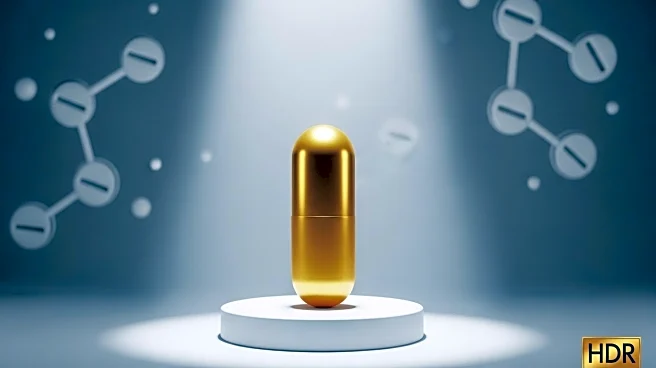What's Happening?
President Trump has imposed a 25 percent duty on Indian goods, raising overall tariffs to 50 percent. However, the pharmaceutical sector has been exempted from this tariff hike. This exemption is attributed to India's role as a leading supplier of generic drugs, which are crucial for affordable healthcare in the U.S. The decision reflects the importance of Indian generics in the U.S. market, where they account for a significant portion of pharmaceutical imports. Industry experts highlight the cost advantage of Indian generics and their contribution to the U.S. healthcare system.
Why It's Important?
The exemption of the Indian pharmaceutical sector from tariffs underscores the strategic importance of affordable generic drugs in the U.S. healthcare landscape. Indian generics play a vital role in reducing healthcare costs, making them indispensable to the U.S. market. This decision may help maintain the flow of low-cost medicines, benefiting American consumers and healthcare providers. It also highlights the interconnectedness of global trade and healthcare, where policy decisions can have far-reaching implications for access to essential medicines.
What's Next?
The ongoing Section 232 investigation may continue to scrutinize the pharmaceutical sector, potentially affecting future trade policies. Indian pharmaceutical companies may leverage this exemption to strengthen their presence in the U.S. market, focusing on expanding their product offerings and enhancing supply chain resilience. The exemption could also prompt discussions on trade relations between the U.S. and India, with stakeholders advocating for policies that support mutual benefits in healthcare and commerce.









